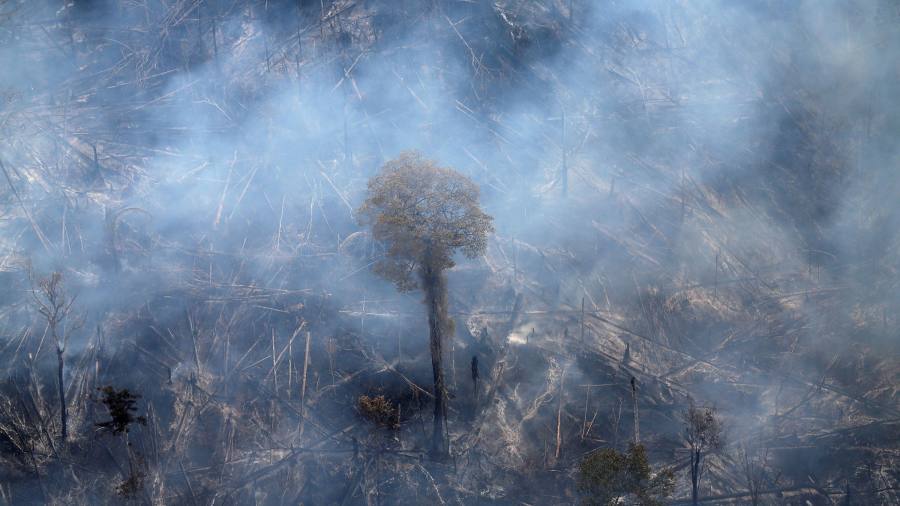[ad_1]
The writer is a Brazilian TV host and entrepreneur
Few countries have suffered more from Covid-19 than Brazil. Over 11m people have caught the virus so far, and more than 270,000 have died. Yet President Jair Bolsonaro has consistently downplayed the threat, ridiculed health measures, opposed lockdowns and sabotaged vaccination efforts. A highly contagious local variant is now spreading around the world.
Inevitably, criticism is growing — and not just because of Covid-19. The president’s appointment last month of a retired general to head Petrobras, the state oil company, damaged confidence. This week, the potential political return of former president Luiz Inácio Lula da Silva undercut market confidence further. Bolsonaro’s popularity has tumbled, despite a cash-assistance programme for the poor.
Even worse, though, than this bungling of Covid-19 and the economy is the government’s gutting of environmental protections. This is a matter of global importance because the future of climate change hinges on Brazil.
The country is home to 40 per cent of the world’s tropical forests, 20 per cent of freshwater reserves and 10 per cent of its biodiversity. Yet during this administration, deforestation rates have surged by 50 per cent, and invasions of protected land more than doubled. A group of indigenous leaders and human rights activists have even asked the International Criminal Court to investigate Bolsonaro for “ecocideâ€.
It need not be like this. In fact, it should not. Instead, Brazil could become a green superpower. It is already one of the biggest producers of soyabean, sugar, corn and beef. But it needs to do so based on a shift towards sustainable agriculture, a thriving bioeconomy and responsible eco-tourism.
This is not an impossible dream. About two-thirds of already-cleared Amazonian land is underused, degraded or abandoned. So Brazil doesn’t need to clear more; it needs to increase the productivity of existing land. It also needs to crack down on environmental crime — such as illegal logging, illicit mining and the financial flows that sustain them — and empower scientists rather than fire them as this government has done.
Most of all, Brazil must listen to people who work with the land, and enlist environmentalists, entrepreneurs, rural landowners and indigenous groups to the cause. There is a popular desire for this, I believe, because for 20 years I’ve taken Brazil’s pulse thanks to a television show I present and produce. It has more than 30m viewers every week, and my social media followers total 50m. My name was even floated in the last election as a possible presidential candidate. But I remain focused on rebuilding competent leadership from the bottom up and helping to create a more sustainable Brazil. Neither Brazil nor the world can afford anything less.
Commercial interests increasingly realise this. A group of 230 global investors with more than $16tn in assets are pressuring companies to work towards halting deforestation. Another 40 Brazilian companies, associations and banks are calling for zero deforestation. And 17 former finance ministers and central bank presidents have set out a pathway to a low-carbon economy.
The administration of US president Joe Biden is also now working with Brazil on climate matters — an issue that had seemed an insuperable hurdle to good relations, given Bolsonaro’s climate change denialism and close relationship with Donald Trump. In fact, this outreach offers the Brazilian government two important opportunities.
It opens a door for Brazil to correct its current course of climate denialism. It also allows for more productive engagement by the government with civil society, business and rural producers to deliver lasting solutions to climate change. If Bolsonaro shirks this opening, Brazil risks becoming even more of a global pariah than it already is.
[ad_2]
Source link






